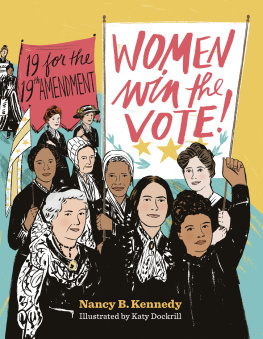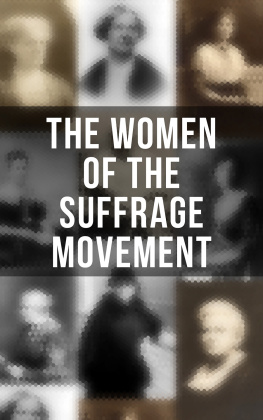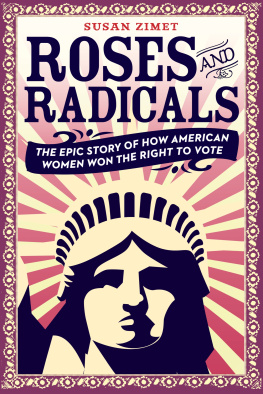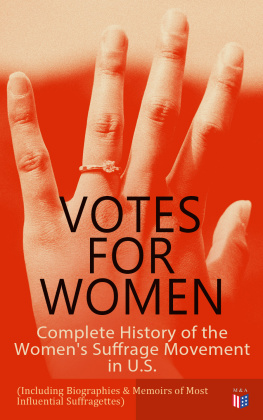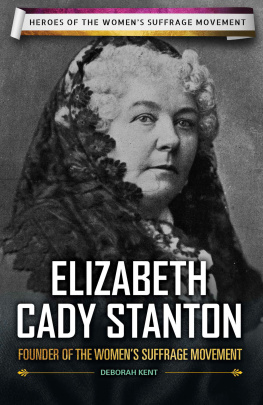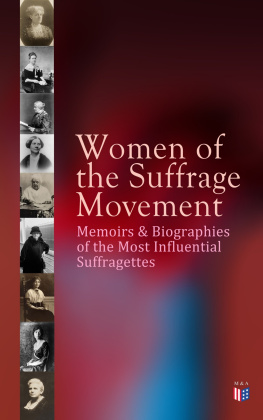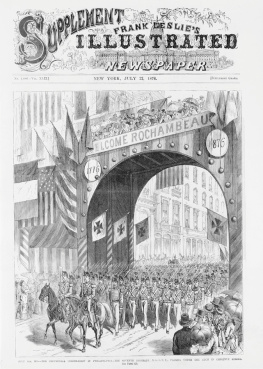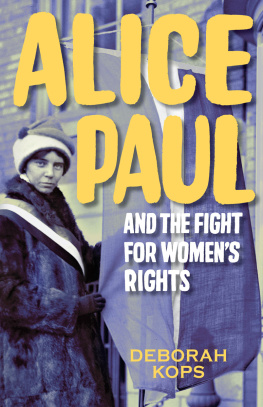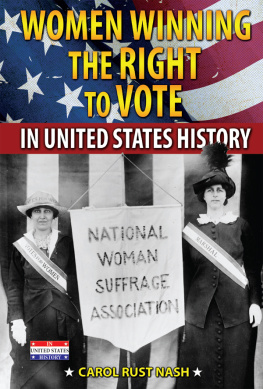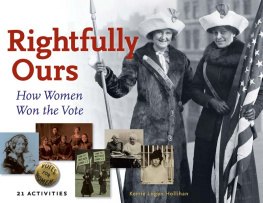Contents
Guide
Page List
WOMEN
win the
VOTE!

19 FOR THE
19TH AMENDMENT
Nancy B. Kennedy
Illustrated by Katy Dockrill

For my own suffragents, John and Evan
THE NINETEENTH AMENDMENT
The right of citizens of the United States to vote shall not be denied or abridged by the United States or by any State on account of sex.
Congress shall have power to enforce this article by appropriate legislation.
Contents

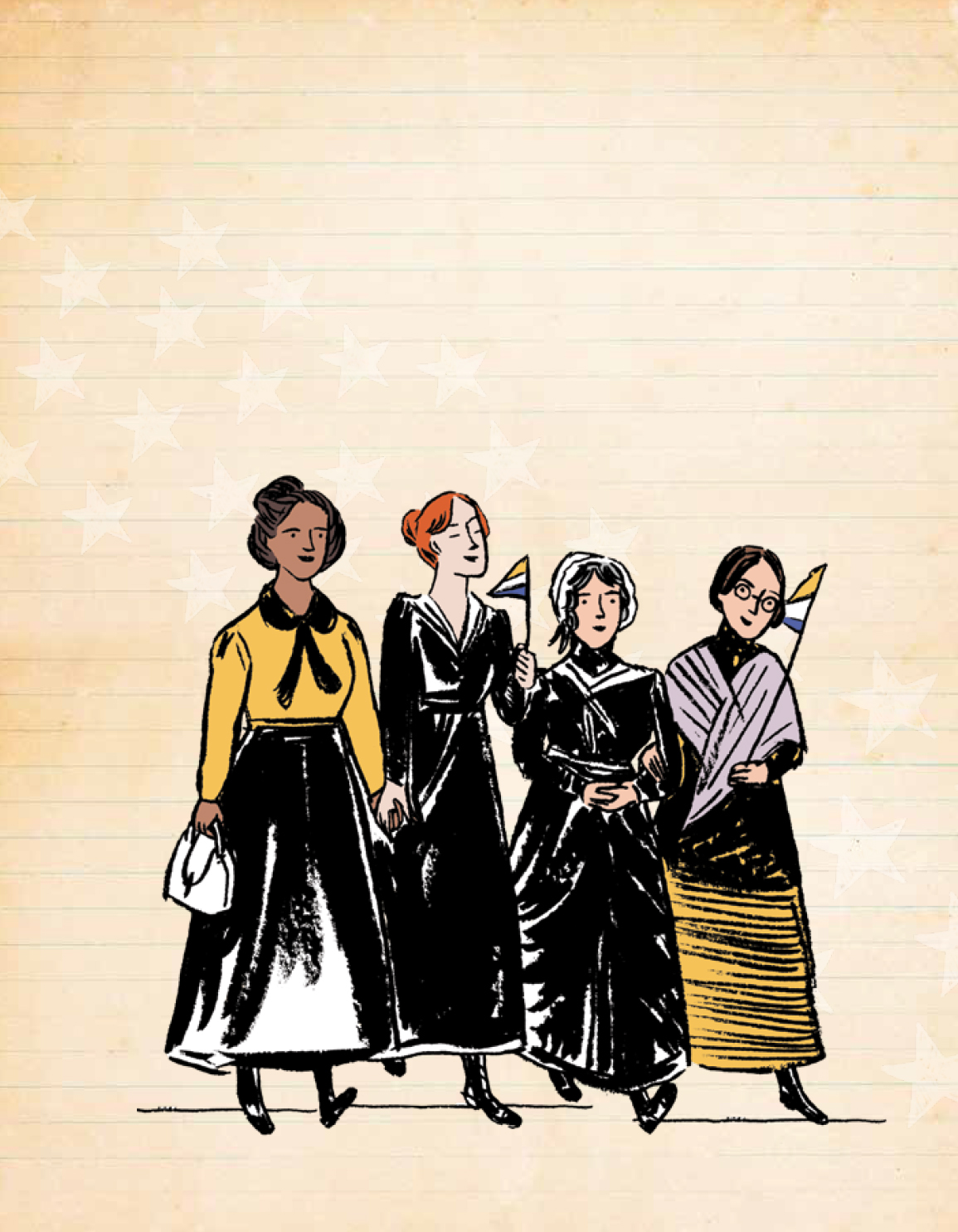

THE RIGHT TO VOTEwe hardly give it a thought these days. Once weve turned eighteen, we can register as voters, and then, on Election Day, we head to our local polling place to cast our ballot. We elect school board members, sheriffs, lawmakers, presidents, sometimes even judges. This right is known as suffrage.
This simple act of citizenship hasnt always been the right of all Americans. Far from it. For most of our nations history, only menand only white men, at thatcould vote. The Constitution of the United States, the document that became our countrys governing law in 1789, spoke of persons and not men. But in practice, and later through laws and court rulings, women were excluded.
Most menand some womenbelieved women just didnt have what it takes to vote.
At first, only free white men over the age of twenty-one who were educated and owned property could vote in our country. These limits left out a huge swath of people held in 1789, only 6 percent of the population had the right to vote.
This division between who could and could not vote became unbearable for those who were denied the franchise. Eventually, women decided theyd had enough and began to push back. Local groups started gathering, and in 1848, the first large-scale gathering devoted to womens rights in the United States took place in Seneca Falls, New York.
These fearless females got the ball rolling!
Our form of democracy allows the Constitution to be changed, or amended. After the Seneca Falls convention, women began to fight for an amendment that would grant them the right to vote. Their single-minded purpose earned them the title of suffragist. They traveled across the country speaking to puzzled audiences who had never heard women speak in public. They lobbied lawmakers who had never faced women determined to have their way.
Finally, in 1878, suffragists succeeded in having their amendment introduced in Congress. But congressmen werent interested. They were afraid women would vote for people and issues they didnt agree with. Year after year, the amendment was introduced, but it wasnt acted on until 1887, when the Senate voted on and defeated the amendment. Despite the setback, suffragists continued to have the amendment introduced every year.
As the years passed, the suffrage campaign lost steam. During the Civil Warand later World War Ithe nations attention was focused on the war effort. Suffrage groups split over the issue of voting rights for African Americans. Some women worked to gain the vote state by state, while others insisted an amendment to the Constitution was the only solution. Suffragists became divided even by tacticssome lost patience with polite lobbying and became militant. If they landed in jail? So much the better! Anything to bring attention to the cause.
When the amendment reached Congress in 1919, forty-one years after the suffragists first attempt, lawmakers were finally listening, and this time it passed. But in order to become law, it needed the approval of thirty-six states. Suffragists began an intense state-by-state battle. Their hard work paid offon August 18, 1920, the Nineteenth Amendment was ratified. Now it was illegal for states or the federal government to deny citizens the right to vote because of their gender. , an estimated 10 million women voted for the first time.
In this book, youll meet nineteen women who paved the way for the vote. Among them are Lucretia Mott, a Quaker who became the mother of the womens rights movement, and Sojourner Truth, a former slave who knew the plight of the oppressed all too well. Youll meet Susan B. Anthony, who was jailed for voting, and Abby Kelley Foster, who refused to pay taxes to an all-male government. Also leading the campaign were Ida B. Wells-Barnett, an African American journalist who refused to walk in a segregated section of a suffrage march; Adelina Otero-Warren, an Hispano woman who led the suffrage fight in New Mexico; and Jeannette Rankin, the first woman elected to Congress.
Millions devoted their lives to this fightthey marched, they protested, they held conventions and gave speeches, they lobbied, wrote articles, and drew cartoons. They were bullied and mocked as man-haters, monsters, and traitors to their sex. They became outcasts in their homes and in their communities. For their actions, they were thrown into filthy, freezing prison cells, where they were beaten and shackled to their cell doors and fed worm-ridden slop. They went on hunger strikes and were held down while prison doctors thrust feeding tubes down their throats. Their resolve was tested daily.
One hundred years ago, women won a hard-fought civil rights victory. For 144 years, our country denied women the voteseventy-two years passed from our nations founding in 1776 until the first stirrings of the suffrage movement in Seneca Falls. For another seventy-two years, women fought valiantly. Theirs was a cause that cost many women their reputations, their families and friends, their health, and, for some, even their lives.
Its something to consider while you stand in line at the polls with your parentsand when eventually you cast your own vote.

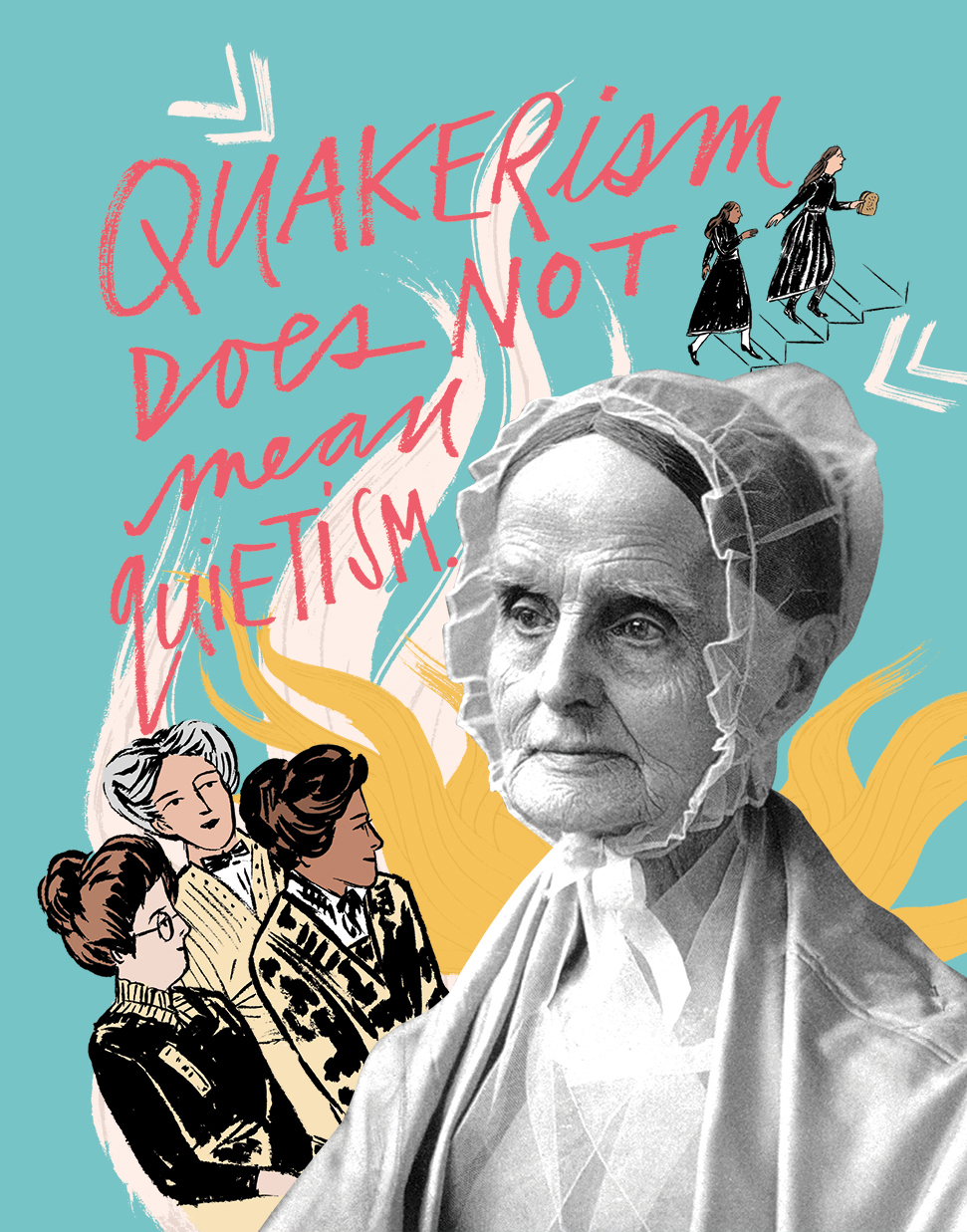

I AM NO ADVOCATE OF PASSIVITY.
LUCRETIA COFFIN was never afraid to break the rules. One day at boarding school, a boy was locked in a closet without his dinner for misbehaving. Eleven-year-old Lucretia and a friend sneaked through hallways and stairwells to the boys side of the school, where they slipped bread and butter under the door for him. They got back without being caught!
Lucretia grew up on the island of Nantucket, off the coast of Massachusetts. Her father was a ship captain who was away from home often, leaving her mother in charge of the family store. When her mother traveled to Boston to buy goods for the store, Lucretia managed the house and cared for her brothers and sisters.
The Motts were a Quaker family. Quakers believe that everyone has a divine inner spirit and that anyone who feels the leading of this spirit can speak in church. Because of this belief, Lucretia was used to hearing women speak boldly. As an adult, Lucretia became a traveling Quaker speaker herself.

